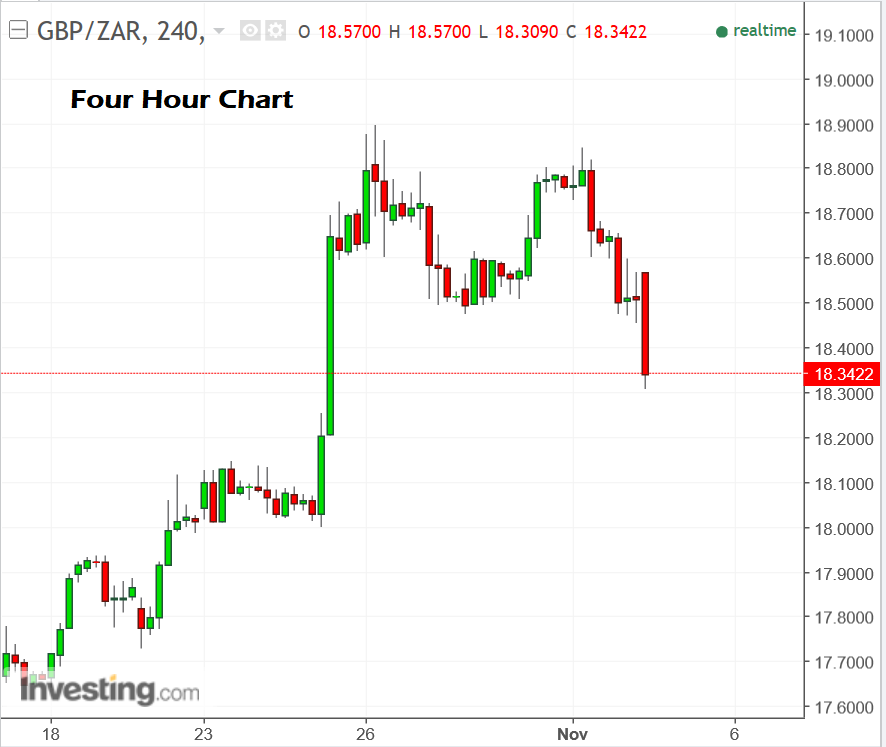Rand Jumps 1.5% Against Sterling in Wake of Bank of England Event

Sterling is seen weakening against the South African Rand after the Bank of England increased interest rates at its meeting on Thursday, but did so cautiously.
The Pound-to-South African Rand exchange rate dropped over a percent on Thursday to hit a low of 18.37 despite the Bank of England lifting interest rates 0.25%.
A combination of trader expectations being met, leading to profit-taking, and suspicions that further interest rate rises will be slow in coming, initiated the fall.
The Pound dropped sharply after the meeting, due to widespread buying before the event, as investors betted on the hike prior to the release, so convinced were they that it would happen, and this pushed up Sterling to a pre-release level which was arguably over-priced.
In addition, the wording of the accompanying statement did not give the market much confidence that the BOE was in a hurry to raise rates again, a fundamental concern of markets.
"Before today, market pricing for rate hikes over the next two years by the MPC equalled that for the Federal Reserve. The logic behind these expectations is sure to be tested and we believe Sterling weakness in response to this dovish hike is more than justified," says Timothy Graf, Head of Macro Strategy for EMEA at State Street Global Markets.
Another factor was the fact the BOE deleted a line from its prior statement which read that it was intending to raise interest rates at a quicker pace than markets expected.
This suggested to some the BOE might be following a 'one and done' strategy.

Above: Sterling Dips against the Rand in the wake of the BoE decision.
Brexit risks also appeared to dampen the outlook for the currency as the BOE said it sees "considerable risks" from "Brexit".
However, others are more sanguine on Sterling's chances and believe the currency's recent period of relative outperformance is not yet done.
"We think the dovish market reaction looks a bit overdone, given that the MPC’s growth forecasts are broadly unchanged from August," says Paul Hollingsworth, Senior UK Economist at Capital Economics.
The post-MPC slump in the Pound comes after a prolonged period of outperformance versus the Rand, ever since at least the early September lows when the exchange rate stood at 16.60 (current level 18.33).
A mixture of political risks and fears that South Africa's credit rating will be downgraded to junk status have pushed the Rand lower versus the Pound and could yet prompt further declines.
According to Morgan Stanley, the Rand's bearishness is likely to extend until the end of the year, at which point a change of leadership could replace President Jacob Zuma with someone more positive for the Rand, which rises whenever a succession is mentioned.
Yet, there is also the possibility that come to the election summit in December the ANC decide to elect Zuma's ex-wife Nkosazana Dlamini-Zuma who it is widely expected would represent a continuity of Zuma's reign and therefore to also be Rand-negative.
Get up to 5% more foreign exchange by using a specialist provider by getting closer to the real market rate and avoid the gaping spreads charged by your bank for international payments. Learn more here.
